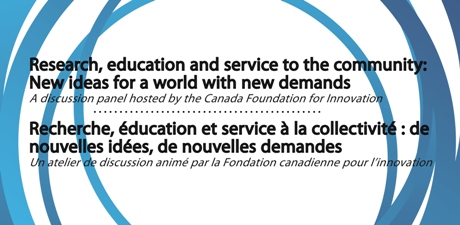Collaboration for a turbulent future
Teghan Barton
Congress 2012 Correspondent
On Thursday afternoon, Congress concluded its Big Thinking Lecture Series with Thomas Homer-Dixon, a prominent local scholar who conducts leading research on complexity science, focusing on the interaction and integration of systems. His well-attended lecture focused on how the work of complexity theory can be utilized by social sciences to understand the turbulent world around us.
As a devout and jaded humanities scholar, I was at first resistant to a scientific approach to what are essentially problems of the human condition (such as racism and violence) yet I found the lecture to be fascinating and it provided a new and unique perspective.
I do suspect that the reverse is true for scientists, that they do not understand how humanities scholars believe they can solve any problems when all we seem to do is theorize in circles. There seems to be a love/hate relationship between the disciplines; respect mixed with confusion and resentment.
While there is a lot separating both sides, there is a heck of a lot more tying them together and it is these ties that need to be encouraged. Within the social sciences and humanities there is an ever increasing push towards interdisciplinary research with the reasoning being that it provides a more well-rounded research method. This approach could be expanded to include not just other arts disciplines, but entirely different fields of study; an interdisciplinary approach that blends the best of both hard sciences and humanities/social sciences.
Homer-Dixon believes that social scientists can learn from the hard sciences and adopt the tools they have developed. To their credit, the humanities could learn some things, utilizing some of the strongest elements such as spatial three-dimension thinking, a more streamlined presentation structure, and the understanding that hard data is not something to be afraid of.
However, the scientific community needs to embrace the liberal arts in return, taking some of the strongest elements from it and integrating them into their own research. Skills like a more self-reflexive approach to research with an awareness of standpoint and privilege and the acceptance that not all problems/solutions can be quantified.
As Congress comes to a close for 2012, we can reflect on the serious and complex issues facing the world right now and the increasing complexity that is to come. If we are going to move through these crossroads successfully, we need to encourage collaboration and collective thinking that spans across disciplines.
image courtesy of cote on flickr





